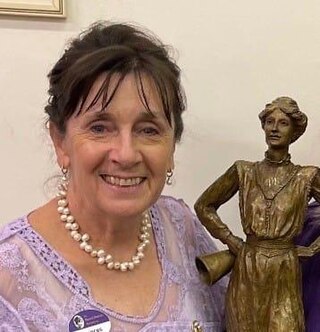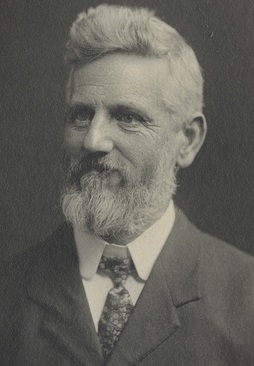
The premier of South Australia is the head of government in the state of South Australia, Australia. The Government of South Australia follows the Westminster system, with a Parliament of South Australia acting as the legislature. The premier is appointed by the governor of South Australia, and by modern convention holds office by virtue of their ability to command the support of a majority of members of the lower house of Parliament, the House of Assembly.

The Parliament of South Australia is the bicameral legislature of the Australian state of South Australia. It consists of the 47-seat House of Assembly and the 22-seat Legislative Council. General elections are held every 4 years, with all of the lower house and half of the upper house filled at each election. It follows a Westminster system of parliamentary government with the executive branch required to both sit in parliament and hold the confidence of the House of Assembly. The parliament is based at Parliament House on North Terrace in the state capital of Adelaide.

Frances Ellen Bedford is an Australian politician who represented the South Australian House of Assembly seat of Florey from 1997 state election until 2022, first for the Labor Party and from 2017 as an independent.

Colonial elections were held in South Australia from 9 April to 23 April 1890. All 54 seats in the South Australian House of Assembly were up for election.

The 1893 South Australian colonial election was held on 15 April 1893 to elect all 54 seats in the South Australian House of Assembly.

The 1899 South Australian colonial election was held on 29 April 1899 to elect all 54 seats in the South Australian House of Assembly. In the seat of Albert, the incumbent members were elected unopposed on 12 April, and the election in the seat of Northern Territory was held on 6 May. All 54 seats in the South Australian House of Assembly were up for election. The incumbent liberal government led by Premier of South Australia Charles Kingston in an informal coalition United Labor Party (ULP) led by Lee Batchelor defeated the conservative opposition led by Leader of the Opposition John Downer. Each district elected multiple members, with voters casting multiple votes. Although the conservatives won more seats, the liberal government retained power until later that year, when new conservative leader Vaiben Louis Solomon forced the government to resign, but only held office for one week. The liberals held government until the next election through leaders Frederick Holder and John Jenkins.

The 1905 South Australian state election was held on 27 May 1905. All 42 seats in the South Australian House of Assembly were up for election. The incumbent conservative government led by Premier of South Australia Richard Butler in an informal coalition with the liberals was defeated by the United Labor Party (ULP) led by Leader of the Opposition Thomas Price. Each of the 13 districts elected multiple members, with voters casting multiple votes.

State elections were held in South Australia on 19 March 1938. All 39 seats in the South Australian House of Assembly were up for election. The incumbent Liberal and Country League government led by Premier of South Australia Richard L. Butler defeated the opposition Australian Labor Party led by Leader of the Opposition Andrew Lacey.
The Finniss ministry was the 1st Ministry of the Government of South Australia, led by B. T. Finniss. It commenced on 24 October 1856 with the introduction of responsible government in South Australia, and the nomination by Governor Richard Graves MacDonnell of Finniss, the appointed Chief Secretary, as the first Premier of South Australia. The ministry operated for several months prior to the 1857 colonial election, which would elect the first House of Assembly. The first House of Assembly was elected in March 1857 and met in April. The Finniss ministry was succeeded by the Baker ministry on 21 August 1857, following their defeat on a confidence motion in the new House.
Colonial elections were held in South Australia on 9 March 1857. All 36 seats in the South Australian House of Assembly, and all 18 seats in the Legislative Council were up for election.
Colonial elections were held in South Australia from 19 March to 21 April 1887. All 52 seats in the South Australian House of Assembly were up for election.
Colonial elections were held in South Australia from 8 April to 23 April 1884. All 52 seats in the South Australian House of Assembly were up for election.
Colonial elections were held in South Australia from 8 April to 27 April 1881. All 46 seats in the South Australian House of Assembly were up for election, along with six of the 18 seats in the South Australian Legislative Council.
Colonial elections were held in South Australia from 29 March to 30 April 1878. All 46 seats in the South Australian House of Assembly were up for election.
Colonial elections were held in South Australia from 10 February to 1 March 1875. All 46 seats in the South Australian House of Assembly were up for election.
Colonial elections were held in South Australia from 14 December to 27 December 1871. All 36 seats in the South Australian House of Assembly were up for election.
Colonial elections were held in South Australia from 6 April to 7 May 1868. All 36 seats in the South Australian House of Assembly were up for election.
Colonial elections were held in South Australia from 20 February to 13 March 1865. All 36 seats in the South Australian House of Assembly were up for election.
Colonial elections were held in South Australia from 10 November to 28 November 1862. All 36 seats in the South Australian House of Assembly were up for election.
Colonial elections were held in South Australia from 9 March to 3 April 1860. All 36 seats in the South Australian House of Assembly were up for election.







